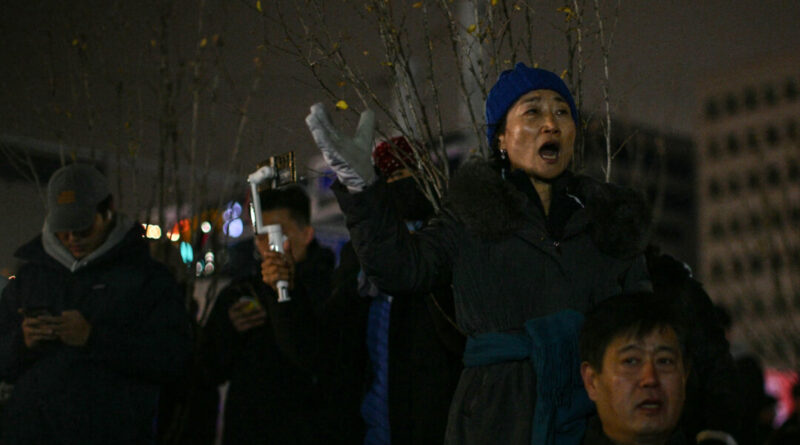South Koreans React to Martial Law After a Brief Encounter
South Korean President Yoon Suk-yeol’s decision to declare martial law on Dec. 3 startled citizens across his country. Yoon reversed the decision after only a few hours, leaving many South Koreans wondering about the lasting impacts of his choice. Kim Tae-young, a 62-year-old resident of Gyeonggi-do Uijeongbu, watched Yoon’s initial broadcast declaring martial law late on the evening of Dec. 3 and couldn’t sleep afterward. He continued to follow the situation until Yoon decided to lift the martial law order after about six hours. “It felt like the sky was collapsing. Really, it felt like our country, in 2024, was going through something we experienced 30–40 or even 40–50 years ago,” Kim said.
Until this week, South Korea hadn’t experienced martial law for more than 40 years. Prime Minister Choi Kyu-hah imposed martial rule in 1979 after the assassination of President Park Chung-hee, who had seized power through military force in 1961. South Korean Maj. Gen. Chun Doo-hwan later took over from Choi and extended martial law into 1981. The decision to declare martial law brought a sense of déjà vu to many, with Lee Da-bin, a 21-year-old university student, joining protests against the martial law order near the National Assembly in Seoul. Demonstrators clashed with troops around the National Assembly shortly after Yoon announced the order, with lawmakers challenging the decree through a vote.
Yoon’s Decision Divides Support Base
Yoon accused the Democratic Party of sympathizing with North Korea and obstructing the government’s work with his martial law decree. Yoon won office in 2022 but has faced challenges passing his agenda through the opposition-controlled National Assembly. Former Prime Minister Hwang Kyo-ahn expressed support for Yoon’s decision, calling the opposition-controlled National Assembly a “dictatorship” of the Democratic Party. However, not everyone within Yoon’s People Power Party favored the martial law order. Han Dong-hoon, the party leader, distanced himself from Yoon’s decision and advocated for accountability.
Martial Law Fuels Economic Uncertainty
The South Korean won experienced a decline after the martial law order, prompting the Finance Minister to inject liquidity into various markets. Yoon’s declaration came shortly after the central bank lowered its economic growth projections, leading to further uncertainties. The timing of Yoon’s martial law declaration was seen as exacerbating economic issues, with concerns about recovery and stability. Kim Yong-hyun’s resignation and aides stepping down indicated the repercussions of Yoon’s decision.
Impeachment Talk Grows
Lawmakers in the National Assembly have started moving towards impeaching the president for violating the constitution with the martial law order. Some members of Yoon’s party support impeachment, while others see it as unnecessary. The situation remains tense as the political landscape shifts following Yoon’s controversial decision.
South Korea’s Future
24-year-old Seoul resident Lee Ji-won expressed shock at the events and stressed the importance of staying informed and engaged in political affairs for the country’s future. The aftermath of Yoon’s martial law order has ignited discussions on governance and the role of citizens in shaping South Korea’s direction. The situation has led to a reevaluation of Yoon’s leadership among supporters like No Gyeong-hyo, who have begun to question his impulsiveness and decision-making.
Kim Yeon, Lee Yunjeong, Park Yohan, Reuters, and The Associated Press contributed to this report.
Correction: An earlier version of this article misspelled Kim Tae-young’s name. The Epoch Times regrets the error.



